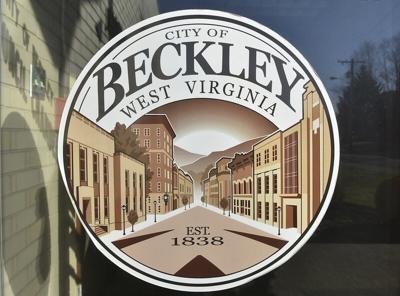Beckley Common Council is poised to do what the state Legislature controlled by Republican supermajorities could not.
About 10 speakers, including local R&B singer Doris Fields and an officer from the state National Association for the Advancement of Colored People (NAACP), urged Beckley Common Council to pass the Crown Ordinance and to end a micro-aggression against people of color in the city.
Supported by the city Human Rights Commission, the proposed Crown Ordinance will bar discrimination based on hair texture and hair style within city limits. State lawmakers failed to pass a similar ordinance during the past two legislative sessions, prompting a number of cities, including Morgantown and Charleston, to pass protections for Black residents, who are disproportionately impacted by discrimination based on hair texture and style.
Mayor Rob Rappold said he is in favor of the proposed ordinance.
"The very narrow intent of the Crown Ordinance that has to do with hairstyles and hair paraphernalia, etc, as it relates to any discrimination, I'm very much in favor of the intent of the wording and the proposed ordinance," said Rappold.
Council will conduct a workshop at City Hall on April 26 at 5:05 p.m. for to discuss and learn about the ordinance. Workshops are open to the public but are not meetings in which members of the public typically speak.
Speaker Crystal Moore, however, asked that council hear the voice of those who are impacted by hair discrimination.
There is one African-American member of council, Ward V Councilwoman Janine Bullock.
"Do you need to be educated?" Moore asked. "Because we bring the passion behind it for you, to sit at the table with us and to have that conversation.
"It's about understanding. We bring that information to you because we live it."
Rappold made an exception for workshop meetings and said one speaker may talk for 10 minutes to council members. He directed Human Rights Commission Chair Danielle Stewart to present a speaker.
Stewart had spoken in favor of the ordinance, which the HRC supports.
Dr. Kristi Dumas told council that the killing of Black Americans by police has been in the news lately.
"Im sure some of them are asking themselves and others, what on earth does this Crown Ordinance have to do with anything?" Dumas said. "It has everything to do with it.
"This ordinance represents a microcosm of the bigger picture of systemic racism. It represents the dismantling of a system that often devalue and dismisses precious human life.
"Our state Legislature failed miserably on all accounts dealing with human rights in this legislative session," she said. "Make no mistake. The intent (of the ordinance) may be narrow, but the implications are broad and far-reaching."
Two bills were introduced in the Legislature this year, one in the Senate where a similar bill easily passed last year only to be hung up in a House commitee, and one in the House. Neither bill advanced this session.
Both the Morgantown and Charleston city councils, which have passed Crown Act ordinances, sent resolutions to the Legislature, expressing their support for the proposed legislation.
Doris Fields, known as singer "Lady D," said that in her field of music, her hairstyle was not an issue, but she had experienced discrimination when she worked in other fields.
"Being made to feel like an outsider, or less than, and to be discriminated against for our national hair is not right and no way should you try to justify or explain away the discriminatory practices around people of color in our work places or schools.
"You may see this as minor offense on a long list of ways to discriminate, but it is a discrimination, nonetheless."
Katonya Hart , vice president of the West Virginia Conference of the NAACP, said Black women are forced to "assimilate" in their jobs to stay employed. A woman can get promoted if she "snips away part of herself," said Hart, referring to Black women being forced to adopt hairstyles that work better with the texture of Caucasian hair and European heritage.
"It is unfortunate that we are experiencing these discriminations, these aggressions, that are hold individuals back," she said. "Any of those situations is violence. It's psychological. It's harmful. We need to make a change."
Stewart said she is aware of a professional woman in Beckley who has been forced to "straighten" her natural hair if she wants to stay employed. To achieve a certain look, her hair has been severely damaged, and she is now balancing between keeping her hair and keeping her job, reported Stewart.
Other speakers said they will no longer wear their hair to appease others.
"It is my body, and my Creator made me that way," one woman said.
Speaker Jeanette Thomas suggested to Council that the ordinance is timely.
"The past few years have produced increasingly open and sometimes hostile expressions of racism," she noted. "This is an important issue, because it addresses another for of racism for which African-Americans are targeted."
She suggested a goal of the ordinance is to show people that they are worthy and accepted.
"We want to raise fully healthy human beings in the city of Beckley," she added.
In 2018, Council amended the city human rights ordinance to include LGBTQ.












Commented
Sorry, there are no recent results for popular commented articles.